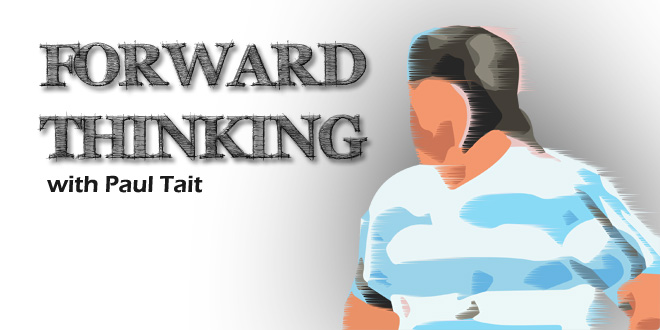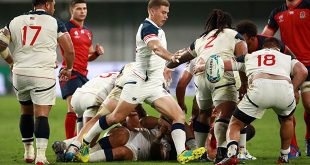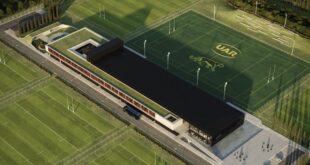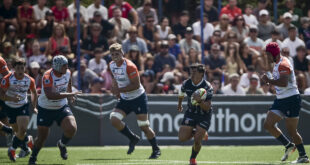Argentina and Los Jaguares have highly talented players but do they have contemporary versions of Juan Martín Fernández Lobbe and Felipe Contepomi?
Argentina has virtually always had some world class players. Mario Ledesma was considered by many as the best hooker in RWCs 1999 and 2007. Juan Martín Hernández and Felipe Contepomi were among the best play-makers in 2007, Agustín Pichot a leading scrum-half in 1999. Marcos Ayerza, and Rodrigo Roncero the leading Loose Head props in 2007, 2011 and 2015.
World-Class with Support
These players were well supported by very good players to give Los Pumas the ability to achieve the results which they have in the professional era. Consider Rimas Alvarez Kairelis, Lucas Borges, Ignacio Corleto, Ignacio Fernández Lobbe, Gonzalo Longo and Martín Scelzo. Would they have made the Wallabies or All Blacks in 2007? Probably not. Yet they were vital players for Argentina during that period, defeated France twice in the RWC while Australia and New Zealand were eliminated in the Quarter Finals.
Los Pumas today have players of the caliber of some but in not all positions. Simply consider Longo and Scelzo – compared to the Jaguares options at no 8 or Tight Head. Today’s crop is inferior.
Finding the next Corcho and Contepomi is what some believe to be the solution. It is, without doubt, a part of it. Yet another part is equally important – Argentina must have great players in all positions.
World-Class individuals will stand-out above them but without them in the side there will not be the platform required. Sergio Parisse cannot do it all on his own for Italy.
RWC Champions
England were pre-tournament favorites in RWC 2003. They would not disappoint but were pushed hard by Samoa, Wales and Australia. World Class players included Lawrence Dallaglio, Martin Johnson, Jason Robinson, Phil Vickery and Jonny Wilkinson. Names including Neil Back, Matt Dawson, Richard Hill, Ben Kay, and Josh Lewsey completed the side. All very good but were they among the best in their positions in the tournament?
South Africa’s side that won in 2007 had comparable characteristics. No player could match Victor Matfield at that point in time. Bakkies Botha, Schalk Burger, Fourie du Preez and Bryan Habana were also all outstanding. Meanwhile Butch James, Percy Montgomery and John Smit all contributed heavily to the title but were they seriously considered in a RWC XV discussion.
New Zealand’s failures in both these tournaments had the public extremely nervous for their home tournament in 2011. It was compounded by the loss of Dan Carter ahead of facing Canada in the pool stage. The best back in the world would miss the rest of the tournament. Injuries meant the 4th choice Stephen Donald would appear in the RWC Final.
Carter’s absence was clear but with world-class athletes in other positions, New Zealand secured the title. Names including Israel Dagg, Jerome Kaino, Richie McCaw, Ma’a Nonu, Brad Thorn and Kieran Read combined with others outside the ‘best in the world consideration’ such as Richard Kahui, and Piri Weepu saw New Zealand lift the Webb-Ellis trophy.
RWC 2019
A consequence of the selection policy, used since Rugby World Cup 2015, has been that it has cut-off many leading backs. Leading backline talent including Marcelo Bosch, Juan Imhoff and Patricia Fernández have not played for Argentina. Meanwhile results have not been impressive and completing a win over New Zealand has become harder rather than easier.
Super Rugby has not seen Argentina fielding a Felipe Contepomi or a Juan Martín Fernández Lobbe. There have been Lucas Borges and Rimas Alvarez Kairellis examples however. Consider Emiliano Boffelli, Ramiro Moyano, Matías Alemanno and Guido Petti.
Suggesting that an x-factor player realistically does currently not exist in Argentina would not be false. Yet the issue is compounded by Daniel Hourcade starting 35-year-old Juan Martín Hernández at fly half against England in November 2017 and Santiago González Iglesias against Australia in October 2016.
Argentina need to beat three of England, France, Tonga and the USA to get out of the Pool of Death. X-factor players can be debated with possibilities being Santiago Cordero, Juan Imhoff, Facundo Isa, Tomás Lavanini and Pablo Matera. Added to this the youth of Emiliano Boffelli, Bautista Delguy, and Marcos Kremer looms as vital.
Argentina is trying to find the next Corcho and Contepomi. Could one emerge in 2018 or is 2019 approaching too quickly? Maybe for the next cycle?
 Americas Rugby News Rugby news from across the Americas!
Americas Rugby News Rugby news from across the Americas!




